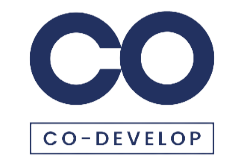Frequently Asked Questions
-
On August 30th, 2021 Rockefeller Foundation, the Norwegian Ministry of Foreign Affairs, and the Digital Public Goods Alliance held a convening titled, “Co-Develop: Digital Public Infrastructure for an Equitable Recovery.” The focus of the session was articulated in a report that was produced in preparation for the convening:
“Digital systems that accomplish basic, society-wide functions played a critical role in the response to the Covid-19 pandemic, enabling both public health and social protection measures. The pandemic has shown the value of these systems, but it has also revealed how they are non-existent or weak in far too many places.
As we build back better, we have an unprecedented opportunity to build digital public infrastructure that promotes inclusion, human rights, and progress toward global goals.”
A number of stakeholders – governments, civil society, bilateral and multilateral agencies, philanthropic foundations, academia – participated in the convening to discuss the importance of digital public infrastructure to advance the Sustainable Development Goals (SDGs). At the end of this convening, there was a call to action: to set up a fund to help countries develop their digital public infrastructure, with a focus on ensuring inclusion, safeguards, and equity.
The idea of setting up Co-Develop evolved from this call to action.
-
Co-Develop is a global not-for-profit fund with a mission to accelerate the adoption of digital public infrastructure that is inclusive, safe and equitable
Co-Develop acts as a resource mobilization platform that receives funds from multiple donors and funds a portfolio of high-impact projects to help countries build safe and inclusive digital public infrastructure. It also acts as an enabler of capital in cases where large donors might choose to fund large-scale, high-impact projects.
-
Co-Develop focuses on mobilizing resources to support country adoption of digital public infrastructure and makes grants to strengthen the digital public infrastructure ecosystem. Our primary goal is to accelerate country adoption of DPI and we have a goal of 50 countries implementing at least one layer of their foundational DPI in the next five years.
-
Traditional physical infrastructure such as roads, bridges, railways, etc. enable a whole range of economic activity. Similarly, when done thoughtfully and with safeguards, digital public infrastructure can provide the foundations that can help empower individuals, as well as enable government and businesses to leverage its best features to build a robust digital economy. digital public infrastructure systems such as an interoperable digital payments infrastructure can unlock significant value for individuals and businesses alike. Similarly, digital identity can help people get SIM cards for telephone connections, access welfare, open bank accounts, etc.
-
In our blog, we have outlined some characteristics that constitute ‘good’ digital public infrastructure. We see this as a starting point of a process of thinking deliberately about safeguards and public interest. This will be an ongoing conversation with several stakeholders to ensure we get to better outcomes.
-
Co-Develop decides what to support by working with countries and technical assistance providers to determine what strategic investments can be made to help accelerate the adoption of country DPI. Those investment ideas are then vetted and ultimately approved by the Co-Develop Investment Committee.
-
Co-Develop has a goal to see at least 50 countries implement at least one layer of Digital Public Infrastructure over the next five (5) years. Therefore, Co-Develop expects to make significant grants to enable countries to build good digital public infrastructure by supporting organizations that can work closely with such countries to make this happen.
-
Co-Develop will work closely with key stakeholders to enable countries to build ‘good’ digital public infrastructure. Some examples include:
Working closely with institutions that have the trust of governments to provide technical assistance on people centric design, policy, and technology, and ensuring that these decisions are inclusive and have built-in safeguards in both law and practice.
Engaging with civil society and academia to develop practical ways of enabling inclusion at scale, through a combination of physical and digital efforts, and other appropriate approaches.
Working with private sector actors to help countries leverage the capabilities of the private sector. For example, providing devices and layers of software that will enable governments to effectively reach people, encouraging local entrepreneurs to leverage digital public infrastructure systems to develop innovative approaches that will serve the community, etc.
-
Co-Develop embraces a co-creation approach. We work closely with organisations to ensure the best possible impact. if you believe your initiative to be a good fit, feel free to reach out via our contact page.
